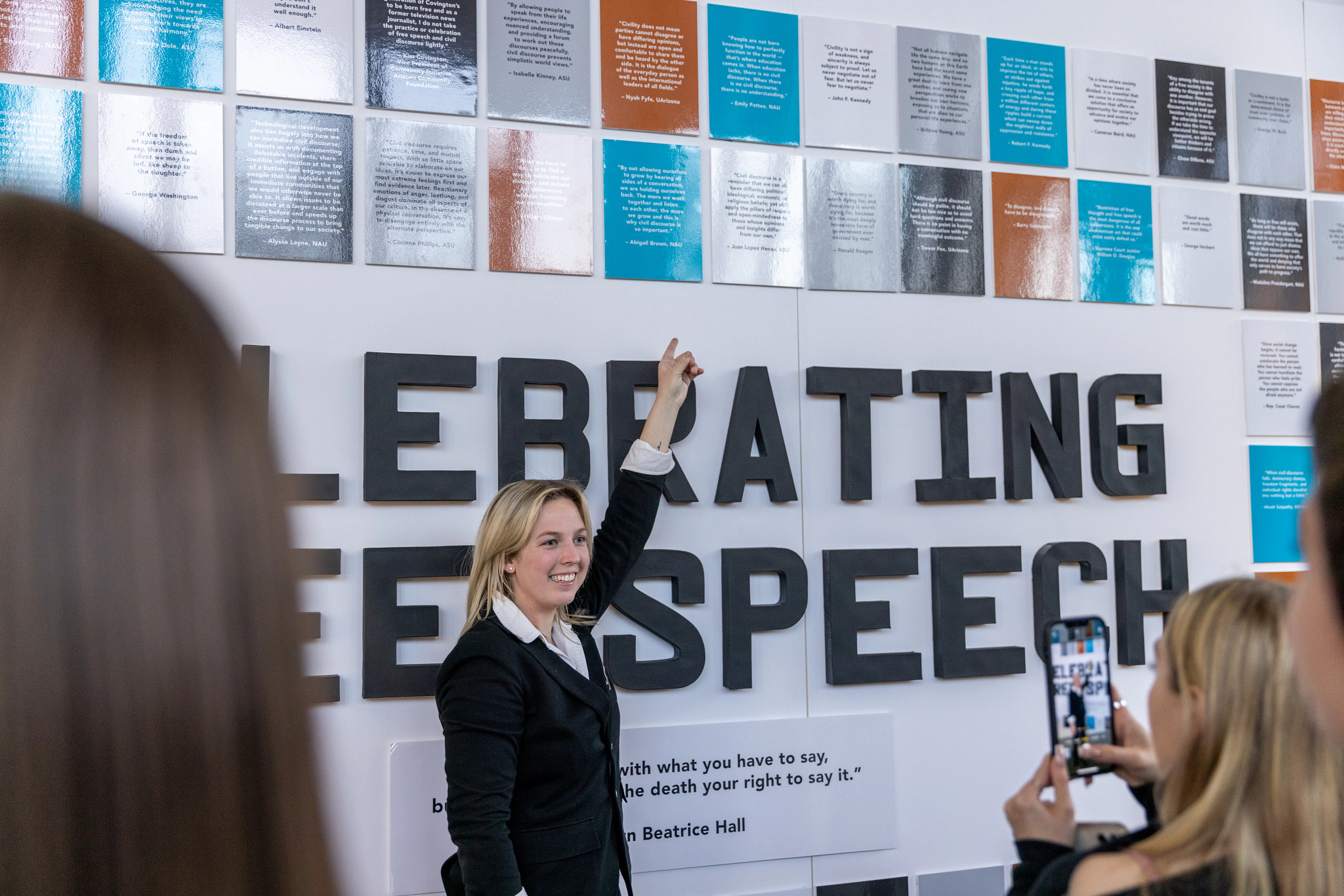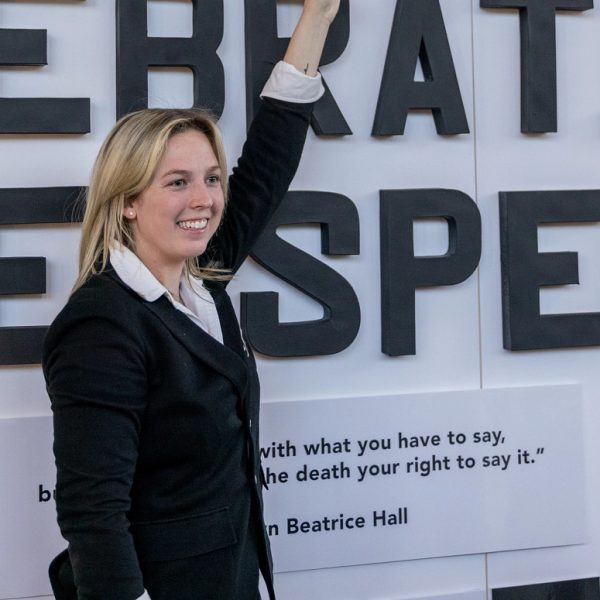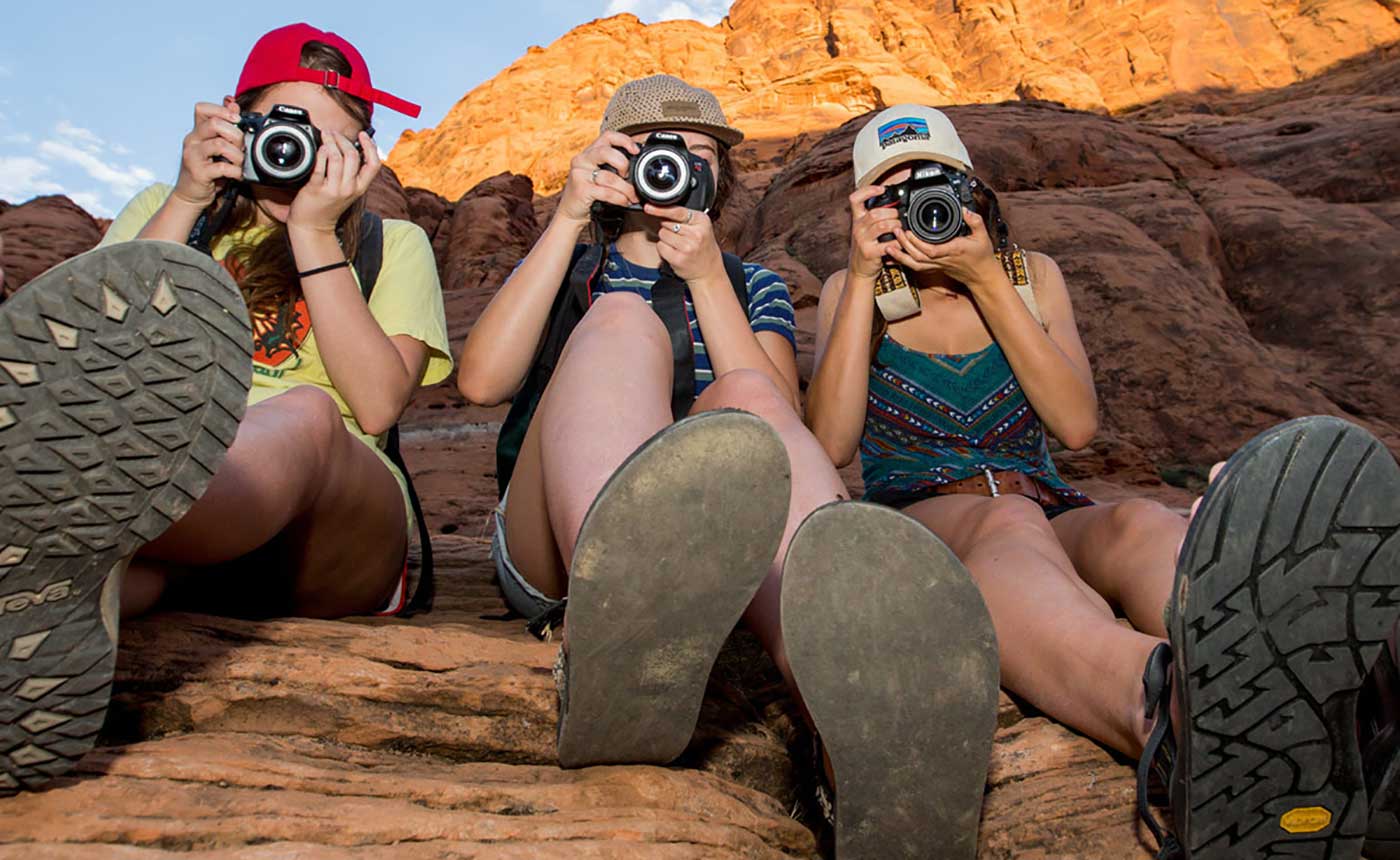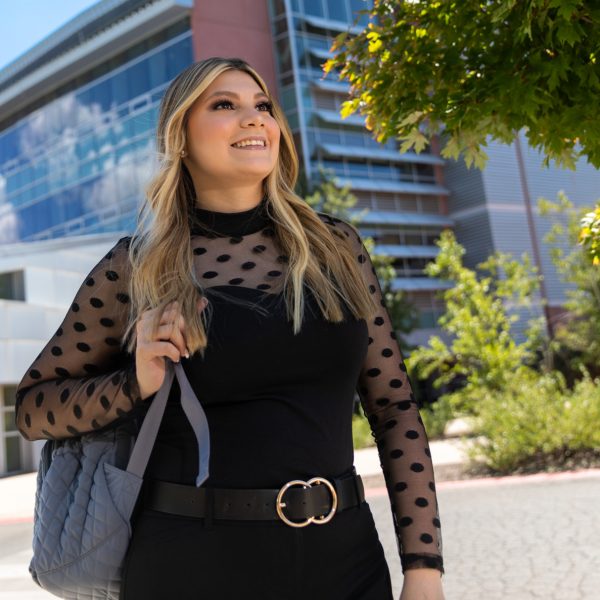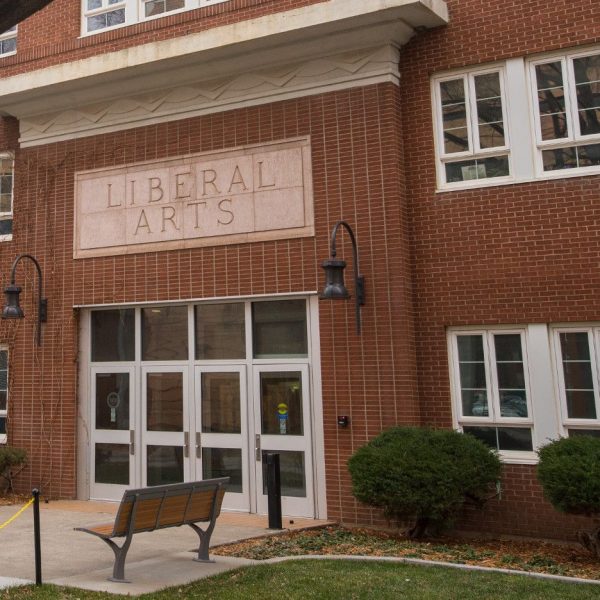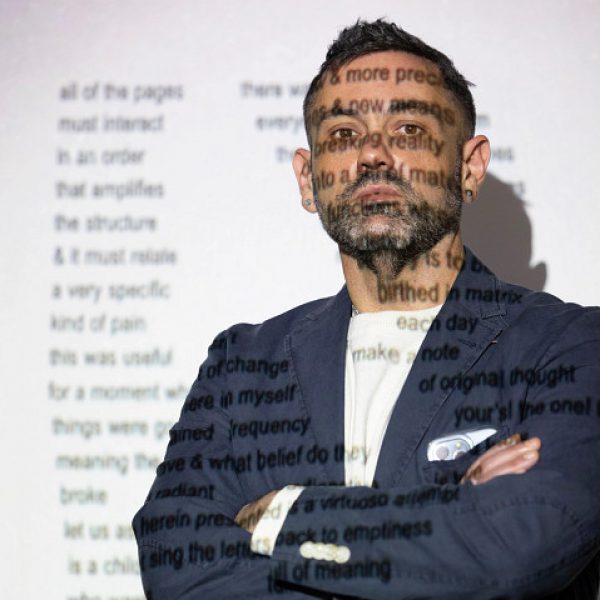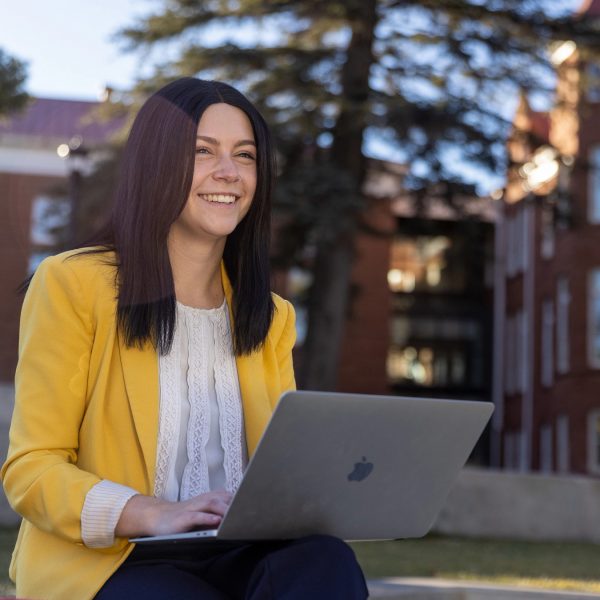Public speaking can be scary. For NAU’s Forensics and Debate director Sarah Walker, that’s exactly why students should join the team.
Walker says being part of the team will teach you two things: first, you discover techniques to decrease pressure and fear; second, you learn how to organize thoughts into structured arguments. “Everybody has lots of really good ideas, but we sometimes struggle to organize those ideas into actions,” she says. “And when you get into a public speaking program, like the forensics team here, you have to learn how to organize your ideas so you don’t just ramble at somebody for ten minutes.”
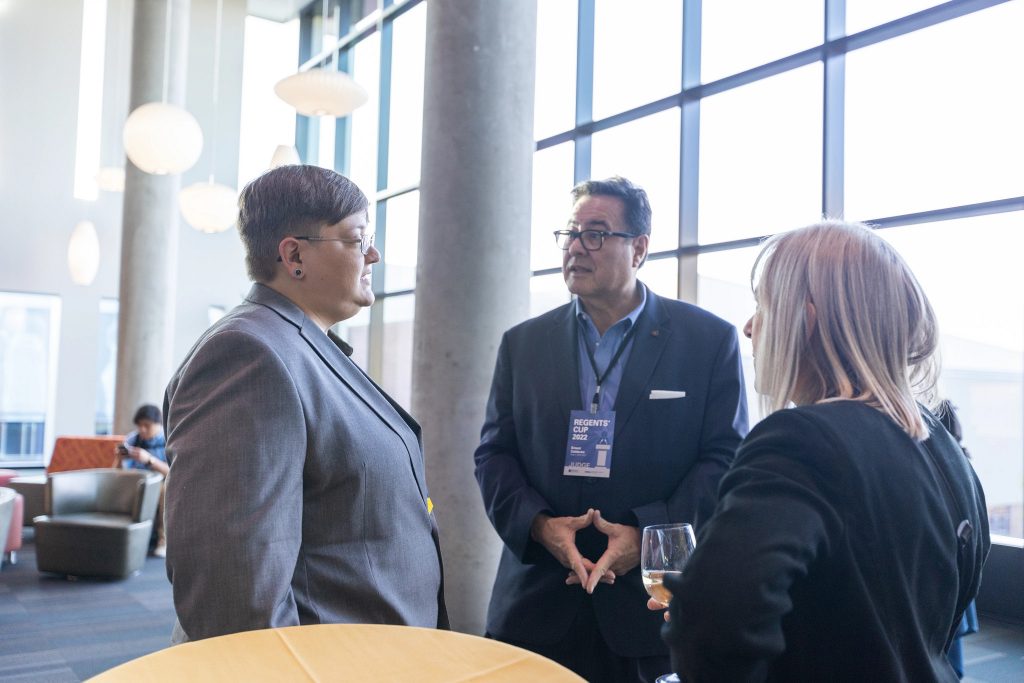
Walker is NAU’s fifth team coach and started during the pandemic. “I was left a lot of really, really good resources by the previous coaches. It’s been a year of getting my feet underneath me, getting things maintained, and moving into sort of a growing year,” she says. “We had a pretty good year.” Despite shutdowns due to the pandemic, the team attended six tournaments—two in person and four online.
Communicating with confidence
Interest in participation is not limited to one major. “One of our seniors was a construction management major this year,” Walker says. “He’s graduated and super excited to use his public speaking skills to convince people to build bridges. It’s one of the things that I love about programs like this—no matter what you do with your life, whether you want to be a farmer or a politician or a doctor, you have to talk to people to accomplish things.”
Hunter Larson, a Political Science major with a minor in Criminology and Criminal Justice, calls joining the team a “happy accident.” He joined via Walker’s speech and debate practicum. “It’s just one of those ‘accidents’ where I showed up and had no idea what I was getting myself into, and it’s worked out to be probably one of the best experiences I’ve had at NAU so far,” said Larson.
The team meets on Tuesdays to practice, research, and get comfortable speaking on different issues. And slowly, they gain self-confidence. “Often, the fear of public speaking comes from this belief that I don’t have anything important to say and people will know that,” Walker says. “It’s not true, but our brains are very good at convincing us that it is. And so self-confidence is one of those sneaky things you gain as you master the skill set because the first time you stand up, open your mouth, and don’t pass out, everybody wins. And, once you’re past that first time, you’ve got a moment to say, ‘I’ve done this once before, and I can do it again.’”
Larson shared that his challenge was confidence, especially when working on impromptu speeches. “I was stressing out while trying to come up with stuff. I’d start hyperventilating a lot of the time before I’d even go in,” Larson says. “It got progressively better and then I got to my second semester, where it just clicked. The struggle for me was gaining the confidence in myself to realize that I can do things differently than how somebody else will do it.”
Larson’s goal is to be a lawyer. “Debate has taught me how to think on my feet a lot faster and get better at public speaking, which I know will help me in the future when I’m in a courtroom,” he says.
Like Larson, Abigail Brown, a Criminology and Criminal Justice major with a minor in Law, Rights, and Justice, is working towards becoming a lawyer. Ultimately, she would like to work in corporate healthcare law. Her professors recognized the passion Brown brought to her written work and recommended she join debate. And she is glad she did—it has helped her organize her thoughts. “I learned how to tone my voice and calm down,” Brown says.
Networking with Arizona leaders
Both Brown and Larson applied for and were accepted to the NAU Regents’ Cup team. The Cup is an annual speech and debate event sponsored by the Arizona Board of Regents. “It’s scary at first because I’m one of fifteen students representing my school,” Larson says. “But you’re never put in a situation where it’s not positive, which is the best part about it.”
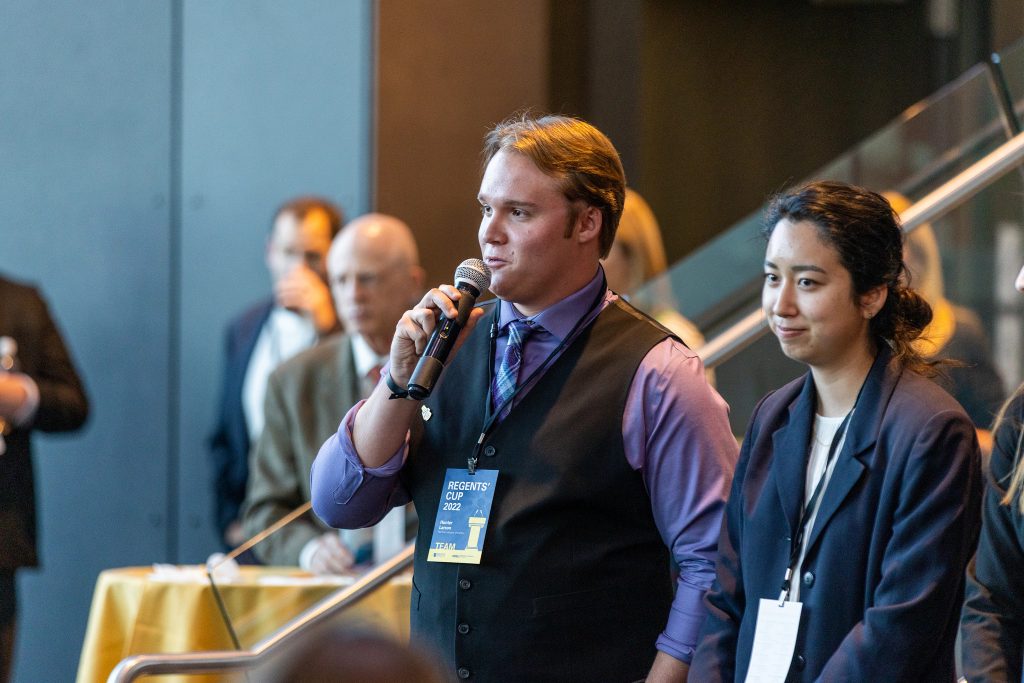
The NAU team competed against the University of Arizona and Arizona State University teams in Oxford-style debates and storytelling. The teams received the subject in January, so they had four months to prepare. Brown competed in storytelling. “We were practicing every week up to the Regents’ Cup, so it was challenging to find the balance between, ‘hey, you need to go rest,’ or ‘hey, you need to study for this,’” Brown says. “Did I win? No. But I felt like I won. I won with the opportunity.”
Students met with leaders from across the state at the opening and closing receptions. “My friend and I met a couple of very prestigious lawyers in Arizona who gave us little helpful hints and tricks. Everybody wanted to help us, which was this really cool experience,” Larson says. “I’ve been lucky enough where I’ve been able to still communicate with some of these individuals. I’ve had a couple of them offer to help me study for my LSAT.”
The team also met with NAU President Cruz Rivera. “When he pulled us in the room before the awards, I said to him, ‘Thank you,’” Brown says. “Thank you for making this important too, and not just football. I was like, ‘Thank you for making words matter.’”
Join the fun
Walker is proud of all of her students. “They’re very, very clever. I think our students are top-notch, if I were to brag a little bit on them.” She adds, “It’s so cool to watch them go from ‘I have very little knowledge about this,’ to ‘I could comfortably discuss this topic with a layperson on the street.’”
And for future potential members, she has this message: “Don’t let big words like forensics or Oxford-style freak you out too much. We’ll teach you everything you need to know over here. We’re having a lot of fun.”
Practice is held on Tuesdays, 6:30 – 9 p.m. in room 320 of the Communications building (16). Contact Sarah Walker if you have any questions.
Debate and forensics—the basics
Wait, just what is forensics?
With the popularity of crime scene shows featuring forensic investigations, it’s easy to be confused when you hear the term “forensics” in another context. The two fields are indeed connected; one of Merriam-Webster’s definitions of forensics is “the application of scientific principles and techniques to matters of criminal justice.”
However, “forensics was a speech term first and a criminal justice term second,” explains director Sarah Walker. The practice started with ancient Greek philosophers discussing different speech formats, including ceremonial presentations and eulogies. Our English word “forensics” comes from the Latin forum (an outdoor assembly space) and forensis (in open court; public). As Western language and legal systems progressed, “the forensic part came to refer to the kind of speaking you would do in a courtroom to determine someone’s guilt or innocence,” says Walker. “So it got tied up in the legal system as well as the speech system.”
So, are debate and forensics the same? Not exactly.
“In forensics, nobody’s there to stand up in the middle of your speech and go, ‘you had a wrong fact,’” Walker says. “But in debate, they certainly can. And then you have that discussion.” NAU’s team members participate in both forensics and debate events.
NAU debate events:
-
British parliamentary debate – students have 20 minutes to prepare their arguments
-
Lincoln-Douglas debate – students debate on a topic set at the beginning of the year
NAU forensics public speaking events, as Walker describes, include:
-
Platform speaking – what we think of as public speaking; e.g., informative and persuasive speeches
-
After-dinner speaking – a funny informative or persuasive speech
-
Limited event or limited preparation categories; e.g., extemporaneous and impromptu speaking—you get a limited amount of time to create a speech on a provided prompt
-
Interpretive categories – similar to storytelling, you express your thoughts and experiences through prose, drama, or poetry; oral interpretation is a mixture of these three
-
Duo – allows you to participate with a partner
Regents’ Cup
Overseen by the Arizona Board of Regents, “the Regents’ Cup is essentially a state tournament for speech and debate. It’s not run by any associations that directly oversee a lot of debate and speech competitions,” says Walker.
Students compete in two formats: Oxford-style debate and storytelling. In an Oxford-style debate, one side argues for a statement and the other against. In storytelling, participants write and perform a personal narrative to illustrate their point of view. They receive the topic several months in advance.

